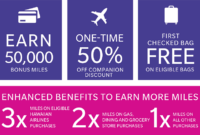Best retirement vacations represent a significant milestone, a chance to finally savor the fruits of labor and explore the world on one’s own terms. This exploration delves into the art of crafting the perfect post-retirement getaway, considering diverse budgets, health needs, and personal interests. From adrenaline-pumping adventures to tranquil escapes, we’ll uncover the ideal vacation for every retiree, ensuring a memorable and fulfilling experience.
We’ll cover everything from choosing the perfect destination and creating a realistic budget to addressing health concerns and arranging convenient transportation. Learn how to select accommodations that meet your needs, plan engaging activities, and even manage pre- and post-vacation logistics with ease. Ultimately, this guide aims to empower you to design a retirement vacation that’s both enriching and stress-free.
Budgeting for Retirement Vacations
Planning your retirement vacations requires careful budgeting, ensuring your dream getaways don’t drain your savings. A well-structured budget allows for flexibility and enjoyment without financial stress, making the most of your hard-earned retirement. Consider your income, desired travel style, and overall financial goals to create a plan that fits your lifestyle.
Budgeting Strategies for Various Income Levels
Different income levels necessitate diverse approaches to vacation budgeting. High-income retirees might allocate a larger percentage of their income to travel, while those with more modest incomes need a more conservative strategy focusing on cost-effective options. For example, a retiree with a substantial pension could comfortably budget $10,000 annually for travel, encompassing multiple trips. Conversely, a retiree living on a fixed income might allocate $2,000 annually, requiring more careful planning and prioritizing less expensive destinations and activities. The key is to create a realistic budget that aligns with your financial situation and desired travel frequency.
Affordable Yet Fulfilling Retirement Vacation Options
Numerous destinations offer affordable yet enriching travel experiences. Consider exploring domestic destinations rather than international ones, often significantly reducing flight and accommodation costs. For instance, a road trip across the US national parks offers breathtaking scenery and diverse activities at a fraction of the cost of a European tour. Alternatively, exploring smaller towns and less-visited regions within your own country can provide unique cultural experiences without the price tag of major tourist hubs. House swapping or staying in budget-friendly accommodations like Airbnb or hostels can also substantially reduce costs. Furthermore, opting for shoulder seasons (spring or autumn) often leads to lower prices on flights and accommodations compared to peak seasons.
Step-by-Step Guide to Planning a Budget-Friendly Retirement Vacation
Planning a budget-friendly vacation involves a methodical approach. First, define your budget. Determine how much you can comfortably allocate without compromising other financial goals. Second, choose your destination and travel dates. Consider off-season travel for better deals. Third, book flights and accommodations in advance to secure the best prices. Utilize price comparison websites and consider alternative accommodations like vacation rentals. Fourth, plan your activities and excursions. Prioritize free or low-cost activities like hiking, exploring local parks, or visiting free museums. Fifth, track your spending throughout your trip. Use a budgeting app or spreadsheet to monitor expenses and stay within your allocated budget. Finally, remember to factor in unexpected costs, such as travel insurance or unforeseen medical expenses. Building a buffer into your budget helps prevent unexpected financial strain during your trip.
Transportation and Logistics
Planning transportation for your retirement vacation is crucial for a smooth and enjoyable experience. The mode of transportation you choose will significantly impact your budget, comfort level, and the overall itinerary. Careful consideration of your destination, travel style, and physical capabilities is essential.
Choosing the right mode of transportation depends heavily on individual preferences and the specifics of your retirement vacation. Cruises, flights, and road trips each offer unique advantages and disadvantages. Understanding these differences will allow you to make an informed decision that best suits your needs.
Comparing Transportation Modes for Retirement Vacations
Cruises offer an all-inclusive experience, with transportation, accommodation, and often meals included in the price. This simplifies logistics, especially for multi-destination trips, but can be less flexible than other options. Flights provide speed and efficiency for long distances, but can be stressful, particularly for those with mobility issues or large amounts of luggage. Road trips offer greater flexibility and the opportunity to explore at your own pace, but require more planning and can be tiring, especially over long distances. For example, a cruise might be ideal for a Caribbean island-hopping adventure, while a flight followed by a rental car might be better suited for exploring national parks across the US. A road trip through Europe could be a fantastic way to experience the countryside at your leisure.
Planning Efficient Transportation for Multi-Destination Vacations
Efficient transportation planning for multi-destination vacations involves careful consideration of travel times, costs, and potential delays. Prioritize booking flights and accommodations in advance, especially during peak seasons. Consider using online travel agencies or working with a travel agent to bundle bookings and potentially secure discounts. For instance, if your itinerary involves flying between cities, investigate the possibility of using connecting flights to save money, even if it means a slightly longer travel time. If you are planning a road trip with multiple stops, map out your route in advance, accounting for potential traffic and road closures. Consider using a GPS navigation system or a travel app to assist with navigation and route optimization.
Managing Luggage and Personal Belongings
Effective luggage management is critical for a stress-free retirement vacation. Packing light is key, reducing the risk of lost luggage and making transportation easier. Consider using packing cubes to organize your belongings and maximize space in your suitcase. If flying, ensure your luggage meets airline size and weight restrictions to avoid extra fees. For road trips, investing in high-quality luggage that can withstand the rigors of travel is advisable. Consider utilizing a checklist to ensure you have packed all necessary items. For valuable items, it’s prudent to carry them in your carry-on bag, minimizing the risk of loss or theft.
Pre- and Post-Vacation Planning
Careful planning before and after your retirement vacation ensures a smooth, enjoyable experience, minimizing stress and maximizing relaxation. Addressing key details beforehand allows you to fully immerse yourself in your trip, while post-vacation tasks help you seamlessly transition back into your routine. This planning is especially crucial for longer trips or those involving more complex logistics.
Pre- and post-vacation checklists are vital tools for managing the numerous details involved in travel. These checklists ensure you don’t overlook crucial steps, leading to a more organized and less stressful travel experience. They also help with a smoother return home, allowing for a more relaxed reintegration into your daily life.
Pre-Vacation Checklist
Thorough preparation before your trip is essential for a stress-free experience. This includes tasks related to your home, health, and travel documents. Failing to complete these steps can lead to unexpected complications and disruptions during your vacation.
- Confirm all travel arrangements: Flights, accommodations, tours, and transportation bookings should be verified and printed or saved digitally.
- Inform relevant parties: Notify your bank, credit card companies, and phone provider of your travel dates and destinations to avoid service interruptions.
- Arrange for home security: Consider having a trusted neighbor collect mail, water plants, and check on your home regularly.
- Make copies of important documents: Keep copies of your passport, driver’s license, travel insurance, and other vital documents in a separate location from the originals.
- Pack appropriately: Pack light but strategically, ensuring you have all necessary clothing, medications, and toiletries.
Pre-Trip Medical Consultations and Vaccinations
Scheduling a pre-trip medical consultation is highly recommended, especially for trips to regions with different climates or potential health risks. This allows for necessary vaccinations and advice on preventing illness or injury during travel. Ignoring this step could have serious health consequences.
A doctor can provide necessary vaccinations based on your destination and advise on appropriate medications for common travel ailments, such as motion sickness or diarrhea. They can also discuss any pre-existing conditions and how to manage them during your trip, ensuring your health and safety.
Post-Vacation Checklist
Returning home after a vacation requires attention to several details to ensure a smooth transition back into your routine. Overlooking these steps can lead to unexpected expenses or inconveniences.
- Check for mail and messages: Collect any accumulated mail and respond to important messages or emails.
- Water plants and care for pets: Attend to any neglected plants or pets.
- Review bank and credit card statements: Check for any unusual activity or unauthorized transactions.
- Laundry and unpacking: Unpack your luggage and wash any dirty clothes.
- Share vacation photos and stories: Reminisce about your trip by sharing your experiences with friends and family.
Managing Home Security and Mail During a Retirement Vacation
Maintaining home security and managing mail while away is crucial for peace of mind. Simple measures can prevent theft or damage to your property and avoid issues with accumulating mail.
Options for mail management include requesting a hold on mail delivery from the post office, having a trusted neighbor collect mail, or using a mail forwarding service. Home security measures can include setting timers for lights, asking a neighbor to check on the property, or installing a security system.
Final Wrap-Up
Planning the perfect retirement vacation requires careful consideration of numerous factors, but the rewards are immeasurable. By thoughtfully addressing budget, health, interests, and logistics, retirees can create unforgettable experiences that enrich their lives. Whether seeking adventure, relaxation, or cultural immersion, the key is to personalize the journey, aligning it with individual preferences and capabilities. Embrace the freedom of retirement and embark on a well-deserved adventure!




